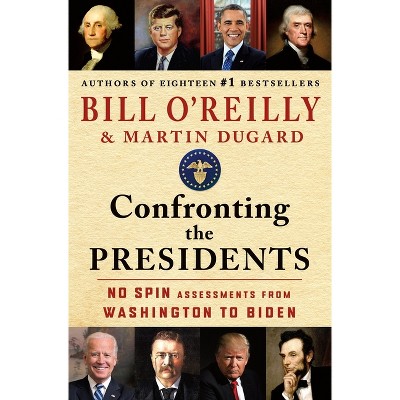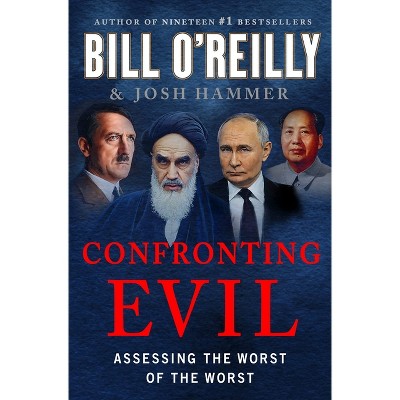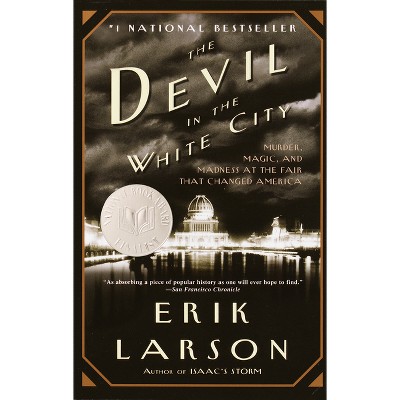Cosmopolitan Dystopia - (Manchester University Press) by Philip Cunliffe (Paperback)

About this item
Highlights
- Cosmopolitan Dystopia shows that rather than populists or authoritarian great powers it is cosmopolitan liberals who have done the most to subvert the liberal international order.
- About the Author: Philip Cunliffe is a Senior Lecturer in Politics and International Relations at the University of Kent
- 240 Pages
- History, Military
- Series Name: Manchester University Press
Description
About the Book
Cosmopolitan Dystopia evaluates cosmopolitan liberalism and shows In their effort to avoid the terrible fate of twentieth century utopias, cosmopolitan liberals have nonetheless created a new global dystopia of permanent war and authoritarian power embodied in 'sovereignty as responsibility'.Book Synopsis
Cosmopolitan Dystopia shows that rather than populists or authoritarian great powers it is cosmopolitan liberals who have done the most to subvert the liberal international order. Cosmopolitan Dystopia explains how liberal cosmopolitanism has led us to treat new humanitarian crises as unprecedented demands for military action, thereby trapping us in a loop of endless war. Attempts to normalize humanitarian emergency through the doctrine of the 'responsibility to protect' has made for a paternalist understanding of state power that undercuts the representative functions of state sovereignty. The legacy of liberal intervention is a cosmopolitan dystopia of permanent war, insurrection by cosmopolitan jihadis and a new authoritarian vision of sovereignty in which states are responsible for their peoples rather than responsible to them. This book will be of vital interest to scholars and students of international relations, IR theory and human rights.From the Back Cover
After thirty years of perpetual warfare by Western states under the banner of human rights, Cosmopolitan dystopia shows that more than populists or authoritarian great powers, it is cosmopolitan liberals themselves who have done the most to subvert the 'rules-based' liberal international order. Despite purporting to offer a more modest vision in opposition to the grand utopian schemes of the twentieth century, this book describes how cosmopolitan humanitarians succumbed to the intoxication of military power and crusading zeal to improve the world.
Cosmopolitan dystopia examines how cosmopolitan exceptionalism has treated the eruption of every new humanitarian crisis as unprecedented, thereby nullifying historic experience and trapping us in a loop of endless war. The legacy of liberal intervention is now a cosmopolitan dystopia of permanent war, new great power rivalries, insurrection by cosmopolitan jihadists and a new authoritarian vision of sovereignty in which states are responsible for theirpeoples rather than responsible to them.
Review Quotes
'Written by one of the top analysts in the peacebuilding field, this highly readable book provides a wealth of fresh and powerful insights. Brimming with new and important framings, from the cosmopolitan dystopia of the title to the treatments of humanitarian anti-diplomacy and new forms of hierarchical sovereignty, this book is a must read for students and practitioners alike.'
David Chandler, Professor of International Relations, University of Westminster
Mervyn Frost, Professor of International Relations, King's College London 'This elegantly written and wide-ranging critique suggests that the current strains in the liberal international order stem not from external forces, or so-called illiberal challengers, but rather from Western states' own attempts to undermine the foundational principle of non-intervention. Through his twin concepts of "inverted revisionism" and "the politics of exception", Cunliffe offers a rich account of how liberal ideals came to fuel episodes of Western hubris, which have in turn contributed to on-going conflict and instability. Provocative and essential reading.'
Jennifer M. Welsh, Canada 150 Chair in Global Governance and Security, McGill University 'Trading in big ideas and compellingly argued, Cosmopolitan Dystopia presents an incisive analysis of contemporary international relations and the fault lines that structure it. Viewed in its totality, what Cunliffe's book offers us, in his own words, is a razor-sharp set of reflections on the stories we tell ourselves about the international order.'
Ethics & International Affairs.
About the Author
Philip Cunliffe is a Senior Lecturer in Politics and International Relations at the University of KentShipping details
Return details
Trending History






Discover more options





